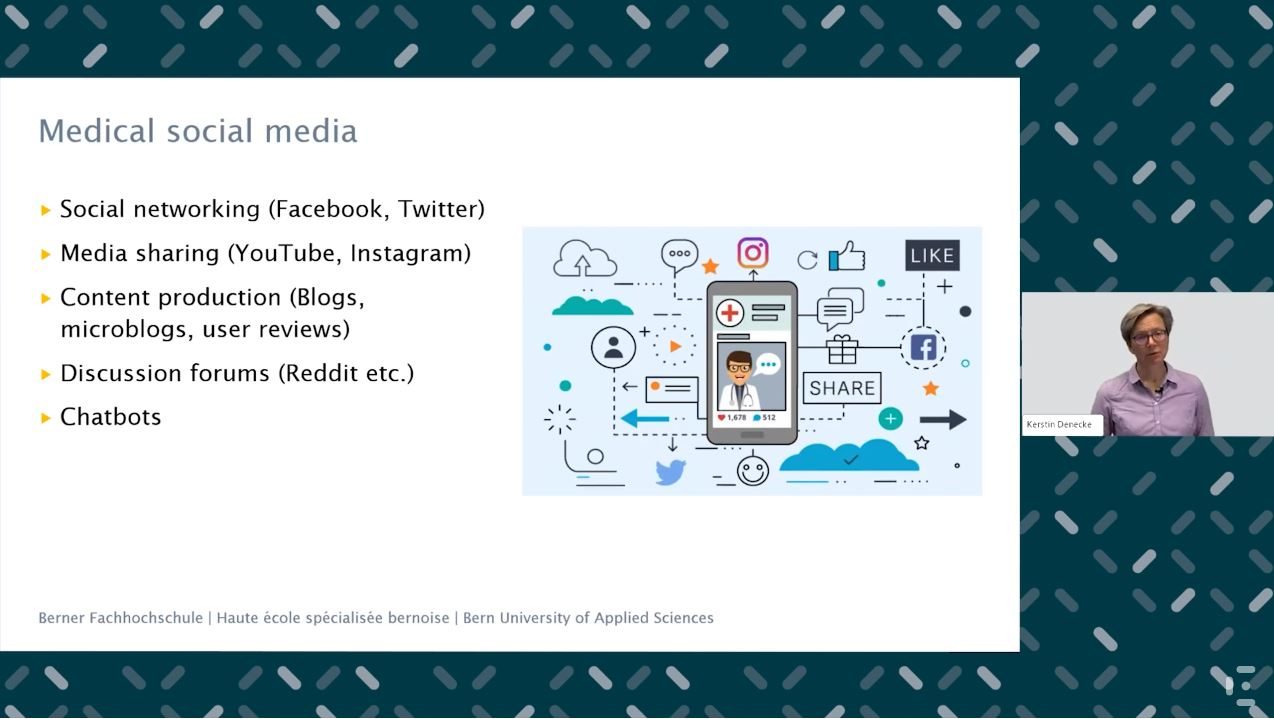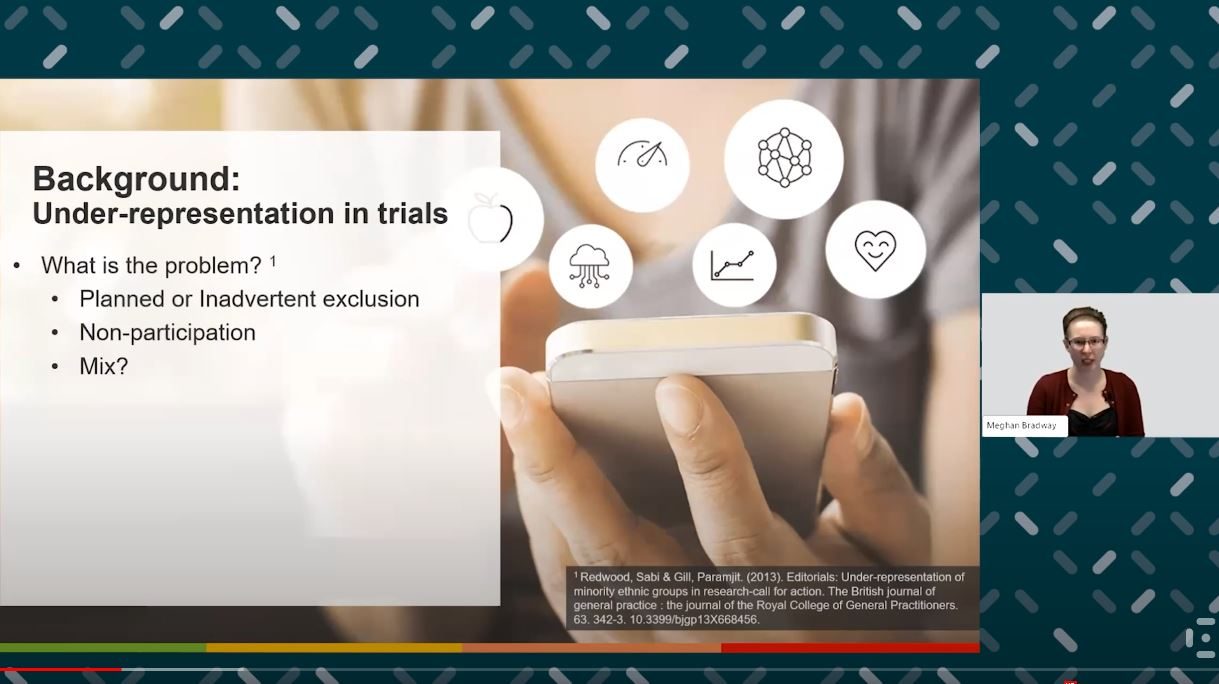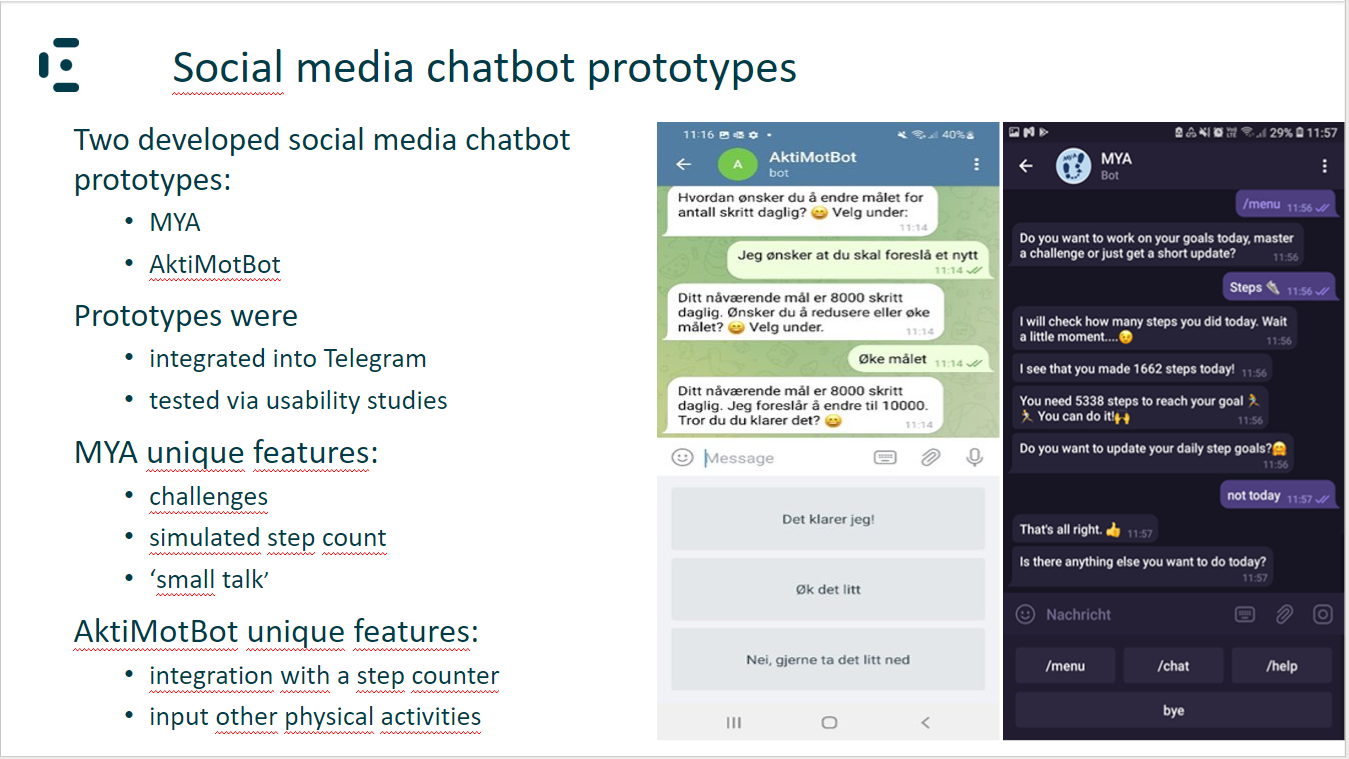How social media can improve our health
Our third open day webinar took place on 22 November 2022. We should look more into social media in health for many reasons. It can be used to educate and nudge people towards a healthier lifestyle. Also, people can find support in social media for managing health conditions.

Professor Kerstin Denecke from Bern University of Applied Sciences gave a presentation about sentiment analysis from social media. In social media, users frequently share their satisfaction or dissatisfaction with healthcare services they have received. By analysing these statements, researchers can – among many things – learn about people’s emotions, health behaviour and the development of diseases and preconditions.
Postdoc at E-health Research Meghan Bradway said that we need to hear what people’s health needs are, and we can use social media to reach them. Some groups are hard to recruit to research projects. Users may be marginalised or stigmatised in different ways, have health conditions or be a sexual or ethnic minority, or reside in specific communities.

UiT Master student Rita-Kristin Hansen asked how social media can be used to promote vaccination. There is a need for cost-effective interventions for vaccination, to communicate their importance. Parental vaccine refusal is one challenge. We want to find out what defines a successful vaccination campaign delivered in social media.
Elia Gabarron is a Senior Researcher at E-health Research and Associate Professor at Østfold University College. She said that the use of social media to provide diabetes-related health education and health promotion should be regarded as a supplementary health service. When using social media the researchers recommend: Framing contents within interviews or personal stories, including emoji and videos in posts, expressing two or more types of social support.
PhD Candidate Ingjerd Skafle from Østfold University College, explained that there are many types of misinformation in social media about the COVID-19 vaccines. Through a systematic review of studies on this topic, she found that there are conspiracy claims about technologies like 5G, to secret societies and Big Pharma, misinformation about the content of the vaccines and how they were developed. Almost half of the studies suggested a connection between misinformation and vaccine hesitancy. However, to better understand vaccine hesitancy we need cultural and historical awareness.

E-health Research PhD candidate Dillys Larbi talked about the FysBot – a social media chatbot for increasing physical activity. We all know that exercise is good for us. However, globally one in four adults are physically inactive. Integrating a physical activity chatbot into a social media platform could be a cost-effective public health tool. To motivate overweight individuals to do physical activity, the chatbot must be friendly, supportive and easy to use.
Professor Eirik Årsand explained why social media is important in education, and in research in general. It has become part of life for many, and for health purposes it has become a great additional information source. Students can benefit from studying the potential social media has. To understand user needs, how people use technical tools, test concepts on real users, and to be aware of the challenges of ethics, privacy and security associated with social media use.
The recorded presentations can be viewed here. (YouTube playlist: Open Days)
Stay tuned for more Open Day webinars in 2023.